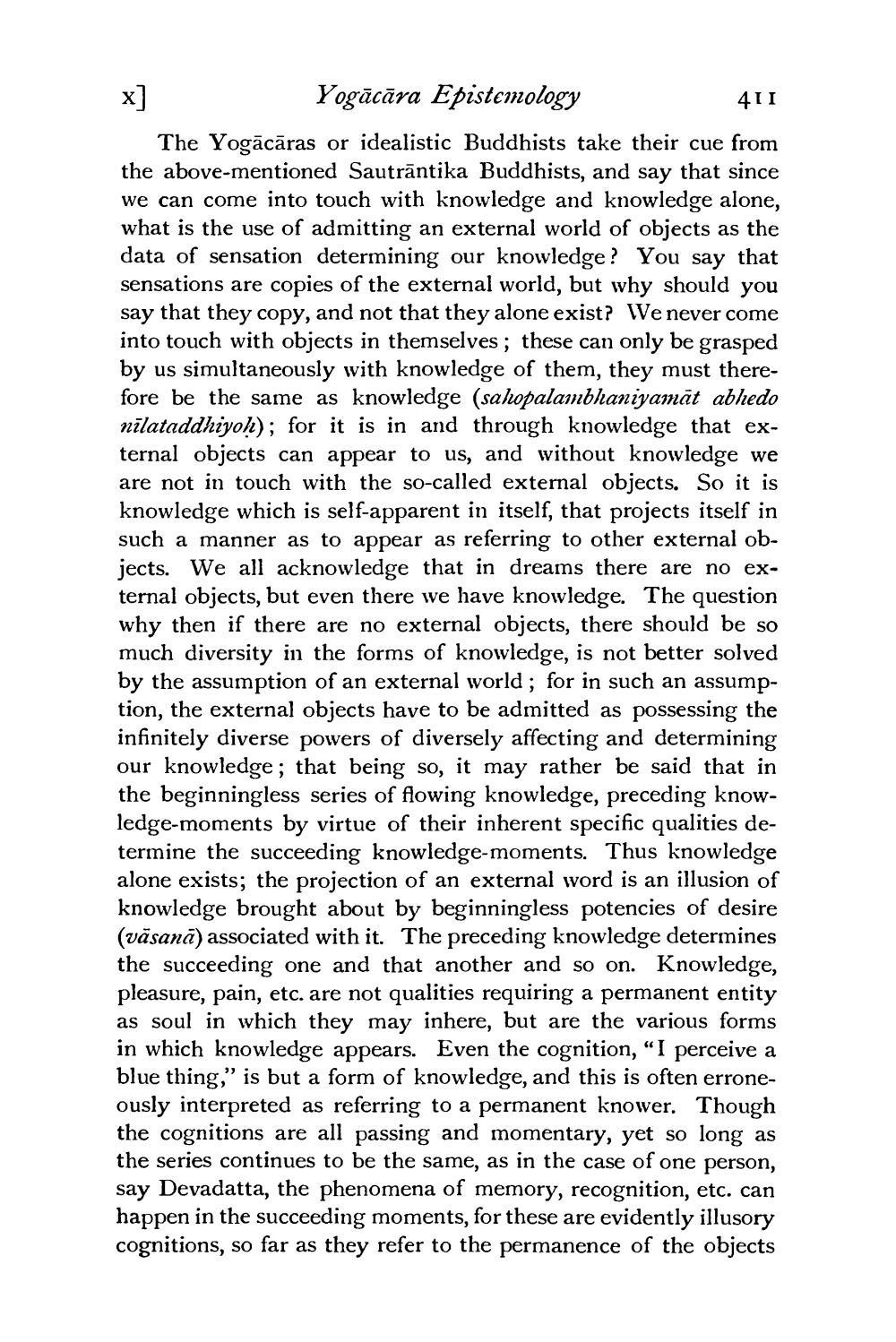________________
x]
Yogacara Epistemology
411
The Yogācāras or idealistic Buddhists take their cue from the above-mentioned Sautrāntika Buddhists, and say that since we can come into touch with knowledge and knowledge alone, what is the use of admitting an external world of objects as the data of sensation determining our knowledge? You say that sensations are copies of the external world, but why should you say that they copy, and not that they alone exist? We never come into touch with objects in themselves; these can only be grasped by us simultaneously with knowledge of them, they must therefore be the same as knowledge (sahopalambhaniyamat abhedo nilataddhiyoh); for it is in and through knowledge that external objects can appear to us, and without knowledge we are not in touch with the so-called external objects. So it is knowledge which is self-apparent in itself, that projects itself in such a manner as to appear as referring to other external objects. We all acknowledge that in dreams there are no external objects, but even there we have knowledge. The question why then if there are no external objects, there should be so much diversity in the forms of knowledge, is not better solved by the assumption of an external world; for in such an assumption, the external objects have to be admitted as possessing the infinitely diverse powers of diversely affecting and determining our knowledge; that being so, it may rather be said that in the beginningless series of flowing knowledge, preceding knowledge-moments by virtue of their inherent specific qualities determine the succeeding knowledge-moments. Thus knowledge alone exists; the projection of an external word is an illusion of knowledge brought about by beginningless potencies of desire (vāsanā) associated with it. The preceding knowledge determines the succeeding one and that another and so on. Knowledge, pleasure, pain, etc. are not qualities requiring a permanent entity as soul in which they may inhere, but are the various forms in which knowledge appears. Even the cognition, "I perceive a blue thing," is but a form of knowledge, and this is often erroneously interpreted as referring to a permanent knower. Though the cognitions are all passing and momentary, yet so long as the series continues to be the same, as in the case of one person, say Devadatta, the phenomena of memory, recognition, etc. can happen in the succeeding moments, for these are evidently illusory cognitions, so far as they refer to the permanence of the objects




